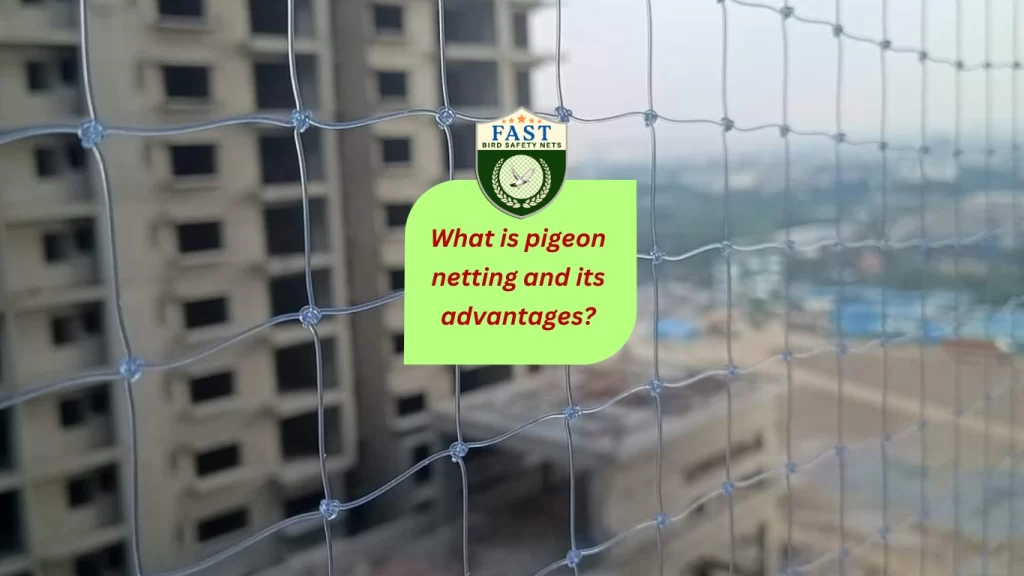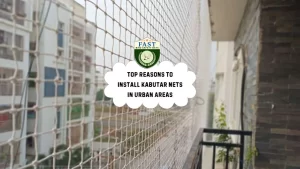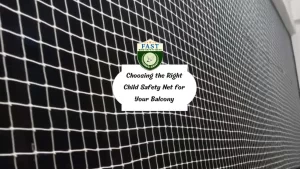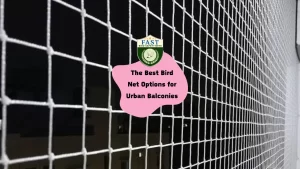Pigeon netting, also known as bird netting or bird exclusion netting, is a versatile and effective solution for keeping pigeons and other birds away from residential, commercial, and industrial properties. This article explores the features, advantages, and applications of pigeon netting.
Features of Pigeon Netting: Pigeon netting is typically made from high-strength and durable materials such as polyethylene or nylon. These materials are UV-resistant, weatherproof, and lightweight, making them suitable for outdoor use in various environments. Pigeon netting is available in different mesh sizes and colors to suit specific requirements and aesthetic preferences.
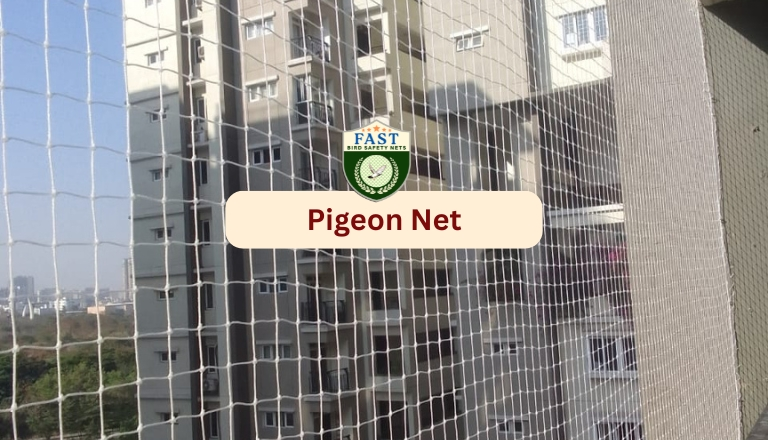
Advantages of Pigeon Netting:
- Bird Exclusion: Pigeon netting creates a physical barrier that prevents pigeons and other birds from accessing designated areas such as balconies, rooftops, courtyards, and building facades. By excluding birds from these spaces, pigeon netting helps reduce property damage, noise, and health hazards associated with bird droppings and nesting materials.
- Humane Solution: Unlike traditional bird control methods such as trapping or poisoning, pigeon netting offers a humane and non-lethal solution for managing bird-related issues. The netting does not harm or injure birds but simply deters them from roosting or nesting in protected areas, allowing for peaceful coexistence with wildlife.
- Versatility: Pigeon netting is highly versatile and can be customized to fit various architectural structures and configurations. It can be installed horizontally, vertically, or diagonally, depending on the application and space available. Pigeon netting can be used in residential buildings, commercial properties, industrial facilities, agricultural areas, and public spaces.
- Long-Term Protection: Pigeon netting provides long-term protection against bird infestations, as it is durable, low-maintenance, and resistant to environmental factors such as sunlight, rain, and wind. Once installed, pigeon netting remains effective for years, ensuring ongoing peace of mind and property preservation.
- Aesthetic Appeal: Pigeon netting is discreet and unobtrusive, blending seamlessly with the architecture and surroundings of buildings and structures. The netting is available in various colors to match the exterior of the property, maintaining its aesthetic appeal while providing effective bird control.
Applications of Pigeon Netting:
- Residential Buildings: Pigeon netting is commonly installed on balconies, windows, rooftops, and gardens of residential buildings to prevent pigeons from roosting and nesting.
- Commercial Properties: Pigeon netting is used in commercial properties such as shopping malls, restaurants, hotels, and warehouses to protect outdoor seating areas, signage, and storage areas from bird damage.
- Industrial Facilities: Pigeon netting is installed in industrial facilities such as factories, warehouses, and power plants to safeguard equipment, machinery, and storage areas from bird-related hazards.
- Agricultural Areas: Pigeon netting is deployed in agricultural areas such as orchards, vineyards, and crop fields to protect crops and produce from bird feeding and damage.
Conclusion: Pigeon netting offers numerous advantages as a bird control solution, including bird exclusion, humane deterrence, versatility, long-term protection, and aesthetic appeal. Whether installed in residential, commercial, industrial, or agricultural settings, pigeon netting provides effective protection against bird infestations while preserving the integrity and aesthetics of the property.

